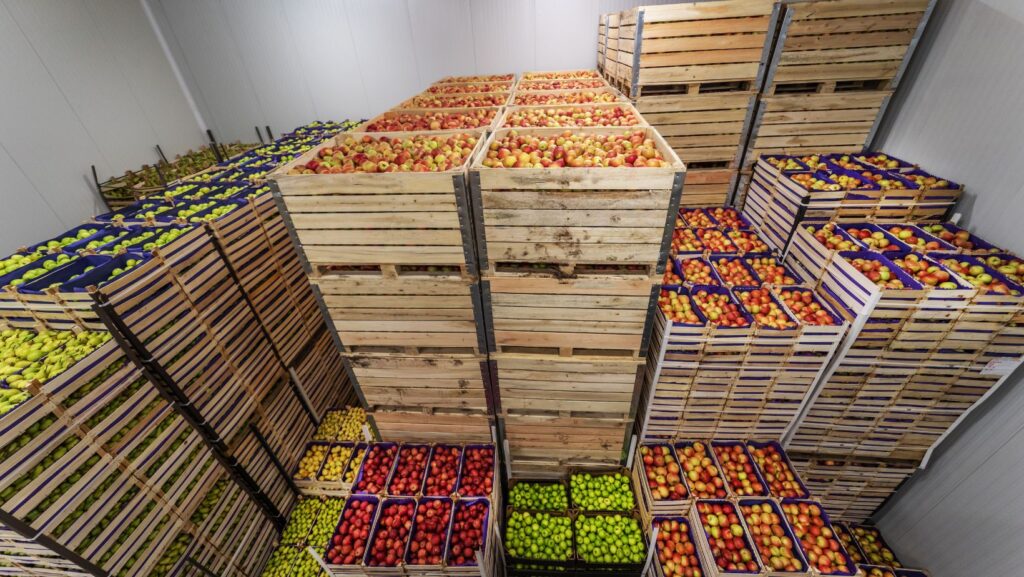Food waste is an escalating concern, particularly during high-traffic events like festivals and farmer’s markets. The combination of large crowds, diverse culinary offerings, and often limited storage solutions can lead to significant quantities of food being discarded. However, there are practical steps vendors and organisers can take to minimise this waste, and one of the most effective strategies is implementing smarter storage solutions.
The Importance of Food Storage
At festivals and markets, the volume of food prepared and sold is enormous. When food isn’t kept at the right temperature or stored properly, it can spoil quickly, leading to waste. By investing in proper storage solutions, vendors can extend the freshness of their products, reduce spoilage, and ultimately save money.
One of the best ways to ensure food is kept at optimal temperatures is to check available freezer and fridge trailers. These mobile storage units are invaluable for event organisers, providing the capacity needed to maintain the quality of food offerings throughout an event. With the right equipment, vendors can safely store perishable items until they are ready to be used, significantly reducing the likelihood of waste.
Managing Your Inventory Wisely
Effective inventory management is key to minimising waste. Vendors should conduct a thorough assessment of expected attendance and potential sales to determine the appropriate quantity of food to prepare. This can be tricky, especially for seasonal events where attendance can be unpredictable.
Tips for Accurate Inventory Management:
• Utilise Sales Data: Look at previous years’ sales data to inform your estimations. This can help you gauge the popularity of items and adjust quantities accordingly.
• Engage with Customers: Encourage pre-orders or surveys before your event. This not only gives you an idea of what customers intend to buy but also builds anticipation.
• Rotating Menus: Introduce a rotating menu where certain items are only available on specific days. This can help decrease overall waste as it encourages customers to come back for different offerings.

Equipment Choices Matter
The equipment used for food storage significantly impacts waste levels. Investing in high-quality storage solutions is a critical step for both vendors and festival organisers.
Essential Storage Solutions:
1 Fridge and Freezer Trailers: These trailers offer a flexible and portable solution. Having ample cold storage on-site allows vendors to bring in fresh ingredients without fear of spoilage.
2 Cold Displays: For items that are ready to eat, consider using cold displays that not only preserve food quality but also entice customers with visually appealing presentations.
3 Packaged and Ready-to-Eat Options: Offering precooked meals or snacks in sealed packaging can help extend shelf life, reducing food waste while providing customers with convenience.
Educating Staff and Customers
One often overlooked aspect of food waste prevention is education. Training staff on the importance of food storage and safe food handling can significantly reduce waste. Additionally, informing customers about the value of food can promote more responsible consumption.
Ways to Foster Awareness:
• Staff Training: Ensure all staff are educated on best practices for food storage, preparation, and waste reduction strategies. Regular workshops can keep the team engaged and informed.
• Customer Engagement: Use signage to communicate your sustainability efforts to your customers. Highlight the importance of helping to reduce food waste by supporting your stall, which can encourage them to make informed choices.
Sustainability Initiatives for Events
Organisers have a role to play in minimising food waste at festivals and markets. By implementing sustainability initiatives, they can create a culture of waste reduction that extends beyond individual vendors.
Collaborative Approaches:
• Food Donation Programs: Work with local food banks to establish a system for excess food donations at the end of the event. This not only reduces waste but also supports the local community.
• Waste Audits: Conduct waste audits post-event to understand common waste streams. This can help identify specific areas for improvement in future events.
• Educational Workshops: Offer workshops during festivals that educate both vendors and attendees on the importance of reducing waste and the impact of their consumption habits.
Embracing Technology
Technology can aid in both storage and waste management. There are various apps and solutions that allow vendors to track inventory levels in real-time, helping to adjust offerings based on sales patterns.
Useful Technologies:
• Inventory Management Software: Solutions that provide real-time tracking can help vendors manage stock levels efficiently, reducing the likelihood of over-preparation.
• Waste Tracking Apps: These tools can help identify when and how much food is being wasted, prompting vendors to adjust their practices accordingly.
Conclusion
Preventing food waste at festivals and markets is a multi-faceted issue that requires concerted efforts from both vendors and organisers. By implementing smarter storage solutions, effectively managing inventory, educating staff and customers, fostering collaboration, and embracing technology, significant waste reductions can be achieved. The goal is to create an experience that is not only enjoyable but also sustainable, ensuring that delicious food isn’t wasted while fostering a community spirit that champions responsible consumption.

In an age where sustainability is more critical than ever, every small initiative counts. Whether you’re managing a local market or heading a large festival, the pathway to waste reduction is clearer when prioritising smarter storage and innovative practices.

